Betty and Carl Pforzheimer Donate $250,000 to the Advocacy
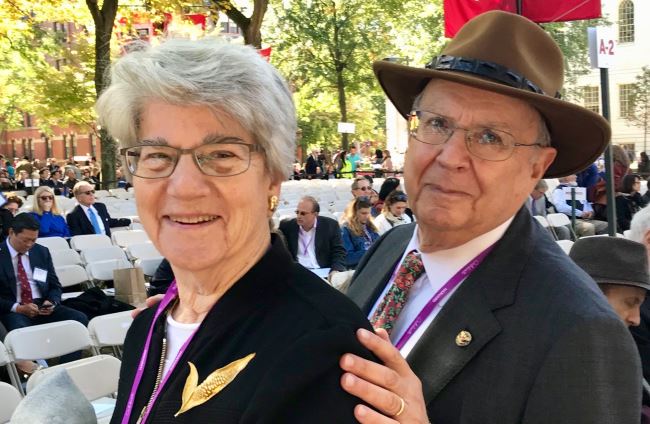 A substantial donation of $250,000 is being given to the Advocacy by Betty and Carl Pforzheimer in honour and in memory of Glenn Irvine, a co-founder of our charity. A substantial donation of $250,000 is being given to the Advocacy by Betty and Carl Pforzheimer in honour and in memory of Glenn Irvine, a co-founder of our charity.
A substantial donation of $250,000 is being given to the Advocacy by Betty and Carl Pforzheimer in honour and in memory of Glenn Irvine, a co-founder of our charity. The Pforzheimers have been important benefactors of the Advocacy since its inception and their magnanimity during the past 17 years has been invaluable. This meaningful contribution will have a wide-ranging impact on the charity’s objective to unravel the causes of NA and to find treatments and a cure. The proceeds of the gift will be applied toward funding the new Glenn Irvine Prize and will help greatly in defraying the significant and continuing expense involved in funding NA research.
The Pforzheimer’s graciousness will serve as a long-lasting tribute to Glenn Irvine who devoted many years looking for therapies and a cure for this rare group of diseases and who cherished his friendship with the donors. The Advocacy wishes to acknowledge with the deepest gratitude both the generosity of this pledge and the Pforzheimer’s commitment to support NA patients.
 |
|
 |  |
Happy Holidays from London to all Advocacy supporters
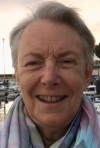 The cool days of the UK autumn remind us here at the Advocacy that the holiday season and the year’s end are fast-approaching. We enjoyed a fruitful year that included a successful symposium held in Dresden Germany, the introduction of the Glenn Irvine Prize and the continuance of important scientific research in NA. We are very grateful for the support of the NA community of patients, family and caregivers, researchers who devote themselves to finding breakthroughs, those who enthusiastically took part in the NA Coffee morning and the very generous donors who are so crucial in propelling our efforts into the future. The Advocacy thanks you one and all and wishes you a very happy holiday season! The cool days of the UK autumn remind us here at the Advocacy that the holiday season and the year’s end are fast-approaching. We enjoyed a fruitful year that included a successful symposium held in Dresden Germany, the introduction of the Glenn Irvine Prize and the continuance of important scientific research in NA. We are very grateful for the support of the NA community of patients, family and caregivers, researchers who devote themselves to finding breakthroughs, those who enthusiastically took part in the NA Coffee morning and the very generous donors who are so crucial in propelling our efforts into the future. The Advocacy thanks you one and all and wishes you a very happy holiday season!
Advocacy announces the establishment of the Glenn Irvine Prize
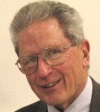 With great pride and excitement the Advocacy announces the establishment of the Glenn Irvine Prize in tribute to the co-founder of our charity. With great pride and excitement the Advocacy announces the establishment of the Glenn Irvine Prize in tribute to the co-founder of our charity.
With great pride and excitement the Advocacy announces the establishment of the Glenn Irvine Prize in tribute to the co-founder of our charity. This Prize was conceived in response to a thoughtful and generous pledge of funds by Betty and Carl Pfzorheimer, who wished to honour Glenn's memory, and which will be used in part towards the funding of this award.
The Glenn Irvine Prize will be awarded biennially and will, in alternate years, give recognition to those who have notably advanced research in the field of NA and to those newly engaged in NA research. The establishment of the Prize will thereby celebrate Glenn’s hard work and devotion to NA patients; it will also heighten the visibility of NA diseases within the research community and encourage discoveries leading to treatments and a cure.
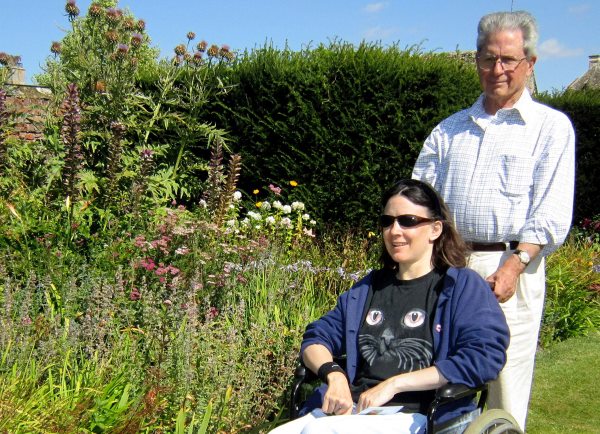
OUTREACH - Cambridge RAREfest to raise awareness of rare diseases
 The Cambridge Rare Disease Network is sponsoring its first RAREfest on 30 November and 1 December 2018 at The Guildhall in Cambridge UK to raise awareness of rare diseases, including NA. The Advocacy will be in attendance and tickets are free. The Cambridge Rare Disease Network is sponsoring its first RAREfest on 30 November and 1 December 2018 at The Guildhall in Cambridge UK to raise awareness of rare diseases, including NA. The Advocacy will be in attendance and tickets are free.
The Cambridge Rare Disease Network is sponsoring its first RAREfest on 30 November and 1 December 2018 at The Guildhall in Cambridge UK to raise awareness of rare diseases, including NA. The Advocacy will be in attendance and tickets are free. The organisers promise a full two-day event that will include speakers, interactive exhibits, films, live demos and other activities intended to inform on the latest rare disease connected science and technologies. The welcome address will be presented by Alastair Kent, OBE FRSA, former executive director of Genetic Alliance UK who is widely involved in rare disease issues and in advocating for the needs of rare disease patients and their families.
Other notable RAREfest events to be featured include a dance performance by Unique Feet performed by children with rare conditions, a Microsoft exhibit that teaches visually impaired children to learn coding and a virtual reality exhibit that assists in pain relief and anxiety reduction. The Advocacy’s Ginger Irvine, Nancy Glynn and Annette Chase will be attending RAREfest to learn more about the latest developments relevant to NA, gather new ideas and meet interesting and informative participants who will be helpful in our cause. If you are interested in attending this free event, you can find more information at https://camraredisease.org/rarefest/. We hope to see you there!
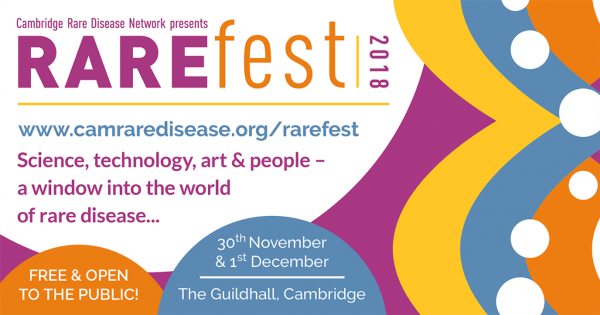
 |  |
Annette Chase joins Advocacy as Business Manager
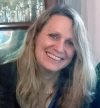 The Advocacy is pleased to introduce the newest member of our team, Annette Chase, who is serving as our Head Business Manager. The Advocacy is pleased to introduce the newest member of our team, Annette Chase, who is serving as our Head Business Manager.
The Advocacy is pleased to introduce the newest member of our team, Annette Chase, who is serving as our Head Business Manager. Annette was born and raised in San Francisco, California. However, she spent much of her life in New York City where she trained and practiced as lawyer, later becoming an administrative law judge, and where she raised her family. She has also lived in the US state of Vermont and in Trieste, Italy and has been residing in London for the past several years. In addition to her legal positions, Annette has taught law-related studies at New York colleges and has been involved with various charitable pursuits.
In London, she has volunteered at FOCUS, a membership organisation for ex-pats, helped raise funds for a project that accessed clean drinking water for children at a school for the blind in Tanzania, and currently serves on the Board of Trustees for the London International Gallery of Children’s Art. We believe that Annette’s diverse experience will be valuable to the Advocacy as she focuses on the sustainability of our organisation to ensure its continuing mission to aid NA patients, including through fundraising initiatives.
 |  |
The Advocacy participates in Findacure events
 In our continuing effort to learn the latest developments on rare diseases and form connections with others searching for solutions in this area, the Advocacy has participated in Findacure events. In our continuing effort to learn the latest developments on rare diseases and form connections with others searching for solutions in this area, the Advocacy has participated in Findacure events.
In our continuing effort to learn the latest developments on rare diseases and form connections with others searching for solutions in this area, the Advocacy has participated in Findacure events. Findacure is a UK based charitable organisation that seeks to strengthen and unify the rare disease community, promote drug repurposing for rare diseases and provide patient group training. Findacure offers free workshops to rare disease patient groups to provide them with guidance in moving forward with their objectives.
This past year, the Advocacy’s Ginger Irvine and Annette Chase have respectively taken part in informative workshops on “Drug Repurposing for Rare Diseases” and “Fundraising for rare disease patient groups”. In addition, our Trustee Nancy Glynn spoke at the Findacure “Peer mentoring 2018 summer meet-up”. Nancy’s well-received topic was on “Training: Personal development as a leader of small patient group”. We look forward to a lasting and fruitful relationship with this important rare disease umbrella organisation.
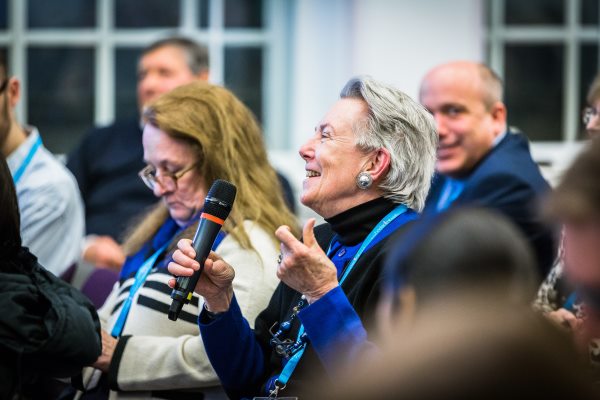
 |  |
RESEARCH UPDATE - Sandra Muñoz Braceras, Madrid | Ruth Walker, New York
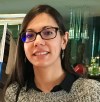 Learn about the recent progress of NA researchers around the world who are investigating the causes, mechanisms and pathology of the NA group of diseases. Updates this issue from: Sandra Muñoz Braceras, Madrid | Ruth Walker, New York Learn about the recent progress of NA researchers around the world who are investigating the causes, mechanisms and pathology of the NA group of diseases. Updates this issue from: Sandra Muñoz Braceras, Madrid | Ruth Walker, New York
Sandra Muñoz Braceras
Biomedical Research Institute Alberto Sols, Madrid
VPS13A and autophagy, possible connections and preclinical studies
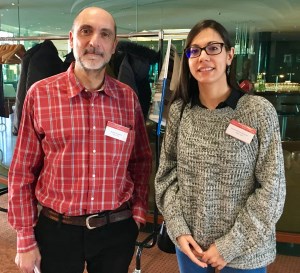 The NA Advocacy grant has allowed me to continue the project I started during my PhD. We have successfully finished the experiments that demonstrate the requirement of VPS13A for an efficient lysosomal function. We are glad to inform you that the results of these experiments are included in a manuscript that is now under review. We are performing some minor experiments suggested by the reviewers and we hope that the manuscript will be published soon so everyone can read our progress in detail. The NA Advocacy grant has allowed me to continue the project I started during my PhD. We have successfully finished the experiments that demonstrate the requirement of VPS13A for an efficient lysosomal function. We are glad to inform you that the results of these experiments are included in a manuscript that is now under review. We are performing some minor experiments suggested by the reviewers and we hope that the manuscript will be published soon so everyone can read our progress in detail.
Lysosomal activity is essential for autophagic degradation and therefore, the defective lysosomal functioning could be the cause of the impaired autophagy that we had previously reported in VPS13A downregulated cells. We also show in this manuscript that the defective lysosomal function due to the loss of VPS13A can affect other intracellular pathways such as endocytosis. In addition, we have studied VPS13A interacting partners and the protein’s subcellular localization in order to explore the mechanistic details of the lysosomal deficiency. I believe that these findings will make a significant advance in the knowledge of VPS13A function and the pathways that may be affected in the disease.
Ruth Walker
Mount Sinai School of Medicine, New York
"Huntington's disease-like disorders in Latin America and the Caribbean" published in Parkinsonism and Related Disorders
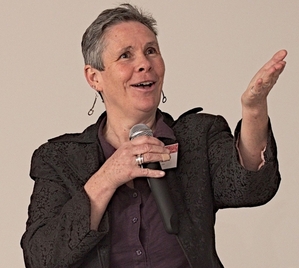 Abstract: Diseases with a choreic phenotype can be due to a variety of genetic etiologies. As testing for Huntington's disease (HD) becomes more available in previously resource-limited regions, it is becoming apparent that there are patients in these areas with other rare genetic conditions which cause an HD-like phenotype. Documentation of the presence of these conditions is important in order to provide appropriate diagnostic and clinical care for these populations. Abstract: Diseases with a choreic phenotype can be due to a variety of genetic etiologies. As testing for Huntington's disease (HD) becomes more available in previously resource-limited regions, it is becoming apparent that there are patients in these areas with other rare genetic conditions which cause an HD-like phenotype. Documentation of the presence of these conditions is important in order to provide appropriate diagnostic and clinical care for these populations.
Information for this article was gathered in two ways; the literature was surveyed for publications reporting a variety of genetic choreic disorders, and movement disorders specialists from countries in Latin America and the Caribbean were contacted regarding their experiences with chorea of genetic etiology. Here we discuss the availability of molecular diagnostics for HD and for other choreic disorders, along with a summary of the published reports of affected subjects, and authors' personal experiences from the regions.
While rare, patients affected by non-HD genetic choreas are evidently present in Latin America and the Caribbean. HD-like 2 is particularly prevalent in countries where the population has African ancestry. The incidence of other conditions is likely determined by other variations in ethnic background and settlement patterns. As genetic resources and awareness of these disorders improve, more patients are likely to be identified, and have the potential to benefit from education, support, and ultimately molecular therapies.
See the full text of the article here.
 |  |
Chorea-acanthocytosis is closely related to diseases with Parkinsonism, dementia, and ataxia
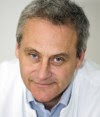 Prominent research published during 2018 in Annals of Neurology has marked a major milestone in NA disease research, confirming that the VPS13 family of genes is implicated not just in NA group diseases like ChAc, but also in dementia and Parkinson's. Prominent research published during 2018 in Annals of Neurology has marked a major milestone in NA disease research, confirming that the VPS13 family of genes is implicated not just in NA group diseases like ChAc, but also in dementia and Parkinson's.
Prominent research published during 2018 in Annals of Neurology has marked a major milestone in NA disease research, confirming that the VPS13 family of genes is implicated not just in NA group diseases like ChAc, but also in dementia and Parkinson's.
Shortly after the gene mutated in chorea-acanthocytosis (ChAc) was discovered in 2001, Antonio Velayos-Baeza from the Monaco group in Oxford started to look for DNA sections homologous to the CHAC gene, as it was called initially. In 2004 he reported about such related genes and named the whole group the VPS13 family, starting with the ChAc gene VPS13A, followed by VPS13B through D. He recognized that VPS13B was identical with COH1, a gene described the year before as responsible for Cohen syndrome. This is a condition quite unlike ChAc, namely a neurodevelopmental disorder that manifests at birth, e.g. with peculiar facial features and eye problems, and that lacks the neurodegenerative features of ChAc which start progressing from early adulthood.
For a long time, the ultra-rare disease ChAc thus appeared to be a lone, disconnected condition – but this situation has now come to an end. First, various hints appeared between 2012 and 2016 that VPS13C might be involved in dementia and in Parkinson's disease. Yet with two papers on VPS13D from 2018, prominently published in Annals of Neurology, it has finally become clear that ChAc has found its family of related neurodegenerative conditions.
A family reunion of sorts was sponsored by the German Society of Neurology and took the form of a 90 minute session at the Messe Berlin on November 1, 2018. This first meeting entirely devoted to the recent progress in VPS13 research at a major scientific convention heard members from the leading labs in the field discuss their current insights. Margit Burmeister apparently had the longest distance to travel to address the session chaired by Adrian Danek (Munich, Germany) and Andreas Hermann (Rostock, Germany). Fortunately, however, Dr. Burmeister was on sabbatical in Germany and came from Heidelberg instead of from her institute in Ann Arbor, Michigan, USA. She spoke about the ataxic movement disorders resulting from VPS13D mutations. Stefanie Smolders joined from the lab of Christine Van Broeckhoven in Antwerp, Belgium, and reported about the autosomal recessive VPS13C mutations in their cases of Lewy body disease, a subtype of Parkinson's. Volker Haucke from Berlin covered the faulty cell biology that underlies Cohen syndrome and Andreas Hermann summarized the current knowledge about ChAc.
The overall picture that emerged suggests that the VPS13 family is essential for the transfer of membrane elements (probably mainly lipids) among several of the various organelles in the myriads of cells that make up the human body.
Much further work will be necessary to fully unravel the details of these mechanisms and to translate them into medical treatment. In any case, the Berlin meeting has reunited ChAc with its family and was another building block to achieve the critical mass of international scientific effort that will eventually lead to cures for VPS13 diseases.
 |  |
FUNDRAISING - Shop and Help the Advocacy through Give as you Live
 The Advocacy is now taking part in the Give as You Live online fundraising platform. We invite all our UK supporters to join us in this effort to raise funds for the Advocacy. Give as you Live will donate to our charity, at no cost to you, a percentage of the money you have spent on a purchase made at a company that takes part in their platform. The Advocacy is now taking part in the Give as You Live online fundraising platform. We invite all our UK supporters to join us in this effort to raise funds for the Advocacy. Give as you Live will donate to our charity, at no cost to you, a percentage of the money you have spent on a purchase made at a company that takes part in their platform.
The Advocacy is now taking part in the Give as You Live online fundraising platform. We invite all our UK supporters to join us in this effort to raise funds for the Advocacy. Give as you Live will donate to our charity, at no cost to you, a percentage of the money you have spent on a purchase made at a company that takes part in their platform. Many big name companies are represented in the UK including Waitrose, Sainsbury’s, Waterstones, Amazon UK and Trainline, just to name a few. So as you do your weekly grocery shop, buy the latest best seller or a Christmas present, or plan a much-needed vacation, you can at the same time feel good about contributing to our cause. Purchases may be made online or by purchasing a store card for an in-store shop. To take part, simply:
- Visit our charity join page at https://www.giveasyoulive.com/join/advocacy-for-neuroacanthocytosis-patients/ct33769
- Click on the blue “Support us, it’s free” button to create your account, and
- Begin shopping online at your favourite establishment or purchase a store card from Give as you Live for in-store shopping.
More information in video format can be found at https://www.youtube.com/watch?v=m7MEGx3R_0Y
We hope that you will be happy to participate in this fundraising venture as the Advocacy greatly needs and values your support. With the combined help of our supporters, even a few cents per purchase can go a long way in achieving our shared goals. Please!

 |  |
Get ready for Rare Disease Day 2019
 Since 2008, Rare Disease Day is celebrated globally each year and will next take place on 28 February 2019. This year’s theme is Bridging Health and Social Care, which will focus on ways to facilitate the coordination of patient healthcare needs with medical and other support providers. This, of course, is a topic of tremendous importance to rare disease patients, family and caregivers. Since 2008, Rare Disease Day is celebrated globally each year and will next take place on 28 February 2019. This year’s theme is Bridging Health and Social Care, which will focus on ways to facilitate the coordination of patient healthcare needs with medical and other support providers. This, of course, is a topic of tremendous importance to rare disease patients, family and caregivers.
Since 2008, Rare Disease Day is celebrated globally each year and will next take place on 28 February 2019. This year’s theme is Bridging Health and Social Care, which will focus on ways to facilitate the coordination of patient healthcare needs with medical and other support providers. This, of course, is a topic of tremendous importance to rare disease patients, family and caregivers.
The Advocacy is looking forward to recognizing Rare Disease Day 2019 by organizing and promoting fundraising events. The assistance of our supporters is crucial to achieving a successful outcome. We are therefore sending a shout-out to all would-be hosts to take part in multi-venue (multi-national!) NA Coffee Morning events. See this article for more information.
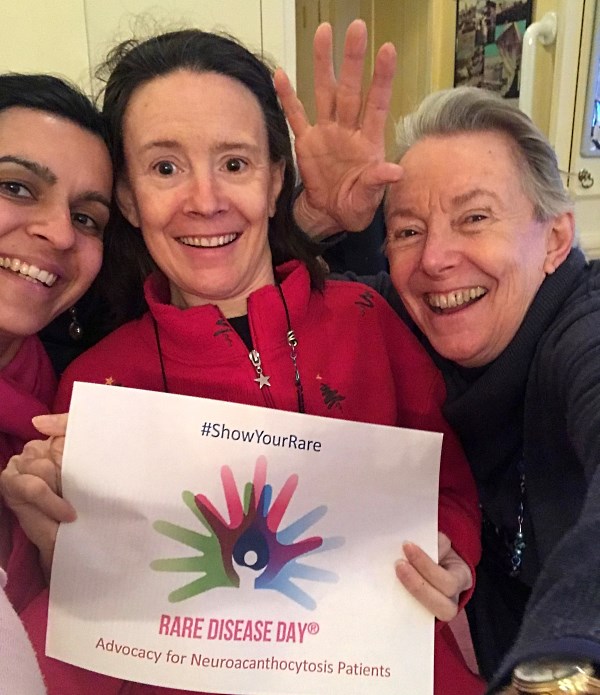
Coffee Mornings... part of the solution to a cure for NA
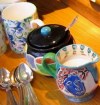 Coffee Mornings are an enjoyable way to socialize with friends and acquaintances who want to be a part of the solution to finding therapies and a cure for NA. Coffee Mornings are an enjoyable way to socialize with friends and acquaintances who want to be a part of the solution to finding therapies and a cure for NA.
Coffee Mornings are an enjoyable way to socialize with friends and acquaintances who want to be a part of the solution to finding therapies and a cure for NA. We are encouraging you to help celebrate Rare Disease Day, February 28, 2019 by raising money for NA.
Venues can range from your kitchen to a church hall. The menu is simple – yummy morning cakes and pastries and plenty of coffee and sure, tea! These treats can be prepared by you or your pals or be store-bought or donated.
We can provide information for your guests and suggestions for your event. Please tell us you’d be happy to help out by contacting us at annette@naadvocacy.org. The more Coffee Mornings the merrier in terms of funds for NA advocacy and research and to raise awareness for all rare diseases.

Parrys take part in Tithe Barn sale
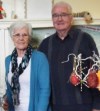 Gill and Gordon Parry in North Wales have once again succeeded in promoting NA and raising funds for our work. They displayed their wares at the annual Tithe Barn sale in Hawarden. With more than the usual people attending they raised over £600 through sales, proceeds from the raffle, door entrance and a cake sale prepared by church colleagues. They will also run two lunchtime sales at the Tithe Barn and the town hall in Llangollen Christmas event. We wish them well and thank them profusely for their grand efforts on our behalf. Gill and Gordon Parry in North Wales have once again succeeded in promoting NA and raising funds for our work. They displayed their wares at the annual Tithe Barn sale in Hawarden. With more than the usual people attending they raised over £600 through sales, proceeds from the raffle, door entrance and a cake sale prepared by church colleagues. They will also run two lunchtime sales at the Tithe Barn and the town hall in Llangollen Christmas event. We wish them well and thank them profusely for their grand efforts on our behalf.
Marianne Aston nominates the Advocacy in will legacy
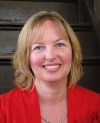 We were delighted to receive this note from Marianne Aston when she chose the Advocacy as a beneficiary during the planning process for her will. Read on to discover how, with little impact on the amount you will leave to your beneficiaries, you can nominate charities like the Advocacy to receive a percentage of your estate. Many thanks to Marianne for generously thinking of the Advocacy, and for describing the process for us. We were delighted to receive this note from Marianne Aston when she chose the Advocacy as a beneficiary during the planning process for her will. Read on to discover how, with little impact on the amount you will leave to your beneficiaries, you can nominate charities like the Advocacy to receive a percentage of your estate. Many thanks to Marianne for generously thinking of the Advocacy, and for describing the process for us.
We were delighted to receive this note from Marianne Aston when she chose the Advocacy as a beneficiary during the planning process for her will. Read on to discover how, with little impact on the amount you will leave to your beneficiaries, you can nominate charities like the Advocacy to receive a percentage of your estate. Many thanks to Marianne for describing the process for us.
Marianne Aston writes:
Five years ago, my father died. My brother and I were so grateful that he had written a will. As a result, obtaining probate and following his wishes was relatively straightforward. This prompted me to write my own will – something to which I had not previously given much thought. I was delighted to discover that in the UK there is a scheme called Will Aid, by which wills can be written for a very reasonable fee by selected solicitors. www.willaid.org.uk
While preparing my will I discovered that it was possible to donate 10% of my estate to registered charities, with minimal impact on the amount I could leave to my beneficiaries. This is because charitable gifts in the UK reduce Inheritance Tax exposure. Everyone wins! So, I set about the very pleasant task of deciding which charities to choose. Animal and cancer charities are generally very well-endowed, so I decided to think about people within my circle of friends, particularly those who had family members with rare medical conditions, more likely to be overlooked by donors.
Several years earlier I had met Ginger Irvine through work, and through her got to know her husband Glenn and daughter Alex. I knew that they were very active in supporting research into NA so I was delighted to pledge 1% of my estate to their charity. In fact, I made 10 separate 1% pledges and it was great fun choosing them. It is an opportunity to make a tangible difference to the causes and people you care about.
Leaving a legacy to charities in your will is a sensible way of financial planning that benefits everyone. The only information you need is the correct full name of the charity and its Registered Charity Number which, for NA, is The Advocacy for Neuroacanthocytosis Patients and 1133182. I commend them to you.
 |  |
Seeking Walkers, Runners, Cyclists for NA
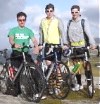 If you're taking on a big personal challenge in the coming year, such as a marathon or other event, we would be thrilled if you'd consider nominating the Advocacy for Neuroacanthocytosis Patients as a chosen charity for raising funds. Read on for ideas on how you can support our cause: finding the causes and treatments for the NA group of ultra-rare neurodegenerative diseases. If you're taking on a big personal challenge in the coming year, such as a marathon or other event, we would be thrilled if you'd consider nominating the Advocacy for Neuroacanthocytosis Patients as a chosen charity for raising funds. Read on for ideas on how you can support our cause: finding the causes and treatments for the NA group of ultra-rare neurodegenerative diseases.
Once again this November, tens of thousands of runners took part in the New York City Marathon. Perhaps you were a participant or have been one in the past or know someone who has run at this awesome gathering. Each year countless people take part in a variety of events involving running, walking, cycling, snowshoeing and a myriad of other challenges. Today, the choices of available activities are endless, and include marathons and triathlons, international cycling tours, trekking through mountains and walks through world-renowned city parks. The sense of accomplishment at reaching the finish line is a great reward and when paired with raising money for a cause, even more so.
The Advocacy has greatly appreciated the efforts of participants who have supported the NA cause in the past and would certainly be thrilled to hear from former and new supporters taking part in future events. If you plan to join a challenge event this coming year, please use this opportunity to fundraise for our charity. You can also show your support by encouraging family or friends who have expressed an interest in engaging in a challenge event to support the Advocacy. This support not only serves to channel funds towards NA research but also raises awareness and interest in these ultra rare diseases. We can provide flyers and small posters to help you explain the cause.
Thanks so much and Go Team NA Advocacy!
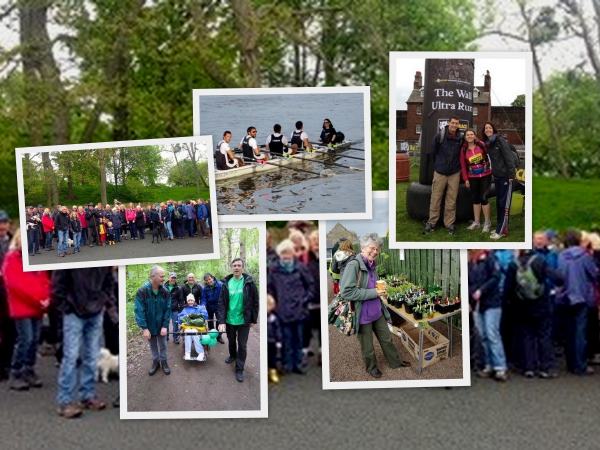
--
PHOTO CAROUSEL:
 |  |
PATIENT NEWS - Kristi Curtis | Alex Irvine
 A selection of updates from NA patients around the world including Kristi Curtis and Alex Irvine. A selection of updates from NA patients around the world including Kristi Curtis and Alex Irvine.
Kristi Curtis
Kristi Curtis from Indiana wrote to us in the summer:
"Thank you for remembering my birthday. I had a really nice day. Update on me: I am almost totally bed-ridden, except for getting up on my bedside commode, and my wheelchair. I have no use of my legs. John lifts me back and forth. He is my rock. He has stuck with me for the past 13 years. I have an amazing caregiver, Alice. She has me on an exercise program. I use 1-lb weights on each hand. I have 6 arm exercises that I do daily. I have 5 leg exercises that I do daily. They have really given me more confidence in myself.
"My speech comes and goes. There are some days that I can talk, but then there are others that I have to use my letter board. Some days my tongue wants to protrude out, and I drool more sometimes. I have no use of my left hand. It's in a claw position. I can grip things with my right hand. My left arm will extend only a little ways out. My right foot turns out to the right. I have gotten glasses to help me with my double vision. I have developed arthritis in my left side of my neck and shoulder. That probably just comes with age.
"We have a beautiful granddaughter, Audrey. She is the highlight of my life. She is 27 months old. They live in Indy so we don't get to see them as much as we would like to. When she comes in the door and says "Hi grandma, and I love you, too", and gives me hugs and kisses, my heart melts. She makes life worth living for. How lucky I am to have two super kids, a great son-in-law, and the most precious granddaughter ever."
Alex Irvine
An update from Alex in London:
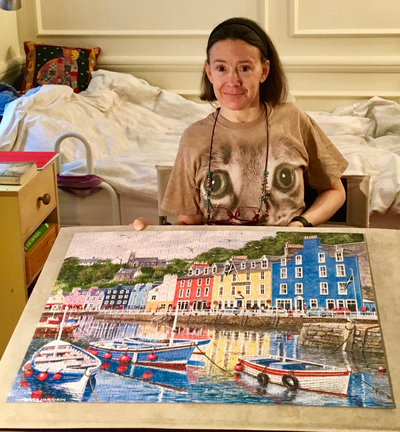 "I'm doing ok; have still got my cat Coco to keep me company and to perk me up when I am feeling down. We’ve all settled in quite nicely to our new ground floor apartment with no more stairs to go up and down. And a garden for me and my mom (and my cat of course ) to enjoy. "I'm doing ok; have still got my cat Coco to keep me company and to perk me up when I am feeling down. We’ve all settled in quite nicely to our new ground floor apartment with no more stairs to go up and down. And a garden for me and my mom (and my cat of course ) to enjoy.
"The whole of the family including my sister Jen, her husband Dietrich, Kobi (20) and Ella (16) plus my dad’s brother John had a very tiring (12 hours door to door) yet enjoyable 4 day trip to Iona and Staffa, both part of the Inner Hebrides in Scotland; we saw the unique puffins on Staffa and partially entered one of the caves where Mendelssohn was inspired to write an Overture. We scattered most of my dad's ashes in the Sound of Iona and my brother-in-law cleverly made a little paper sail boat in which he set off the remainder. It was quite a moving moment.
"I really enjoy doing the jigsaw puzzles that are given to me, mostly of cats, still utilising the blue tac at the end of a pencil technique. And I still have an artist who comes every three weeks to inspire me into doing more painting. I also like going to the movies, sometimes twice a week.
"Mom, my sister Jen and I attended The Dresden Conference in March. It brought together the science group of consultants and researchers with some patients and families. We enjoyed meeting everyone and participating in the
medical panel and music sessions; we heard discussion about future collaboration pointing to new projects which will lead to more research into the "bad" gene and find answers with DNA testing.
"Finally a big THANK YOU TO EVERYONE for their continued support of the Advocacy!"
 |  |
Living with NA: a view from Mike Koutis
 Mike Koutis, who lives in Winnipeg, Canada, wrote this message on Facebook: it gives an honest and heartfelt view of life with NA. Please feel free to read and share Mike's story. Mike Koutis, who lives in Winnipeg, Canada, wrote this message on Facebook: it gives an honest and heartfelt view of life with NA. Please feel free to read and share Mike's story.
Mike Koutis, who lives in Winnipeg, Canada, wrote this message on Facebook: it gives an honest and heartfelt view of life with NA: My name is Michael Koutis. My goal is to bring awareness to a disease of which so little is known. It is isolating and lonely for me and my brother (yes, he has it as well). Unlike an accident where the changes are sudden and immediate, a disease can take its time claiming one’s body. The changes are terrifying, somewhat fascinating, but mostly surreal. Although I am trapped in my body as it deceives me, it sometimes feels like an out of body experience, if that makes sense?
I don’t ask for pity, I ask for practical advice on raising awareness where it counts the most, with you, my government, who can bring about change through research, and raise hope for a couple of guys who need it the most.
Here is my story.
At age 36 I was a “normal” healthy, happy guy. I had a rewarding career as a teacher, was happily married and looking forward to a bright future. Suddenly, out of nowhere, I began to make unfamiliar and strange sounds with my throat. This was the beginning of my journey.
I don’t know how many doctors I visited or how many tests I endured without results, but they seemed endless and futile. One by one better known, or more common diseases were ruled out, to them I was a medical mystery! Five years into my journey I was finally diagnosed with the extremely rare degenerative disorder called Neuroacanthocytosis (NA).
I am now divorced, unable to work, collecting a meagre but most appreciated disability insurance and living in a nursing home.
My symptoms include vocal and facial tics, extreme fidgeting, and biting down on my tongue to the point where it has changed shape. I have had teeth removed in the hope of alleviating pain and further damage. I am unable to walk on my own or feed myself. I fling myself at walls (odd but true) and cannot sleep more than a couple of hours at a time….oh how I wish I could.
Sleep deprivation can play nasty tricks on one’s mental and emotional state, and is as difficult to endure as my physical symptoms. I take Lorazepam, Tetrabenazine, Haloperidol, Amitriptyline, and Diazepam to try to control my movements and help me sleep. Even with all of this swimming through my system, I wear a helmet and have had every table corner and hard surface padded, to prevent injury when I thrash or fall. Life expectancy is 10-20 years from onset, which may sound generous but I am eight years in and feeling very much aware of time, and my need to act.
Sure, I have down days, one of the worst was when I had to tell my parents of my disorder and all that it will take from me, but because of their love and support, and that of my friends, I am usually smiling and happy. There is a support group out there to help us cope, and that is necessary, but I would like to ask my Government for its support to somehow, some way find a cure or treatment for my foe…..Neuroacanthocytosis (NA).
I don’t know how a disease like NA, which affects relatively few, ever gets noticed, but if there is a way to simply ask for help….this is my plea. To know that someone has heard me, and might share my story with others, gives me (and my brother) hope that someday, someone might be working on finding a cure.
Thank you.
 |  |
Advocacy announces NANews Special Patients Volume 2
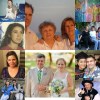 We're currently planning a new volume of the newsletter dedicated just to patient news, which means we are keen to hear from you. NANews Special Patients Volume I, which appeared in 2012, received many positive responses from around the world. It is time to repeat this effort as we continue to hear of new patients, families and carers from all continents who are affected by neuroacanthocytosis (NA). We're currently planning a new volume of the newsletter dedicated just to patient news, which means we are keen to hear from you. NANews Special Patients Volume I, which appeared in 2012, received many positive responses from around the world. It is time to repeat this effort as we continue to hear of new patients, families and carers from all continents who are affected by neuroacanthocytosis (NA).
We're currently planning a new volume of the newsletter dedicated just to patient news, which means we are keen to hear from you. NANews Special Patients Volume I, which appeared in 2012, received many positive responses from around the world. It is time to repeat this effort as we continue to hear of new patients, families and carers from all continents who are affected by neuroacanthocytosis (NA).
The next issue of NA News will again be devoted to their stories, including the therapies and the pastimes they benefit from plus photos if they so wish. In this issue we will also remember patients who have sadly died.
If you know someone who may be or has been affected by NA, please contact me at mailto:ginger@naadvocacy.org. See also the symptoms described on naadvocacy.org and let your doctor know about the free blood test that may offer a confirmed diagnosis. If you would like to report the death of an NA patient, either recently or in the past, please do not hesitate to get in touch.

 |  |
Polish translation of NA News now available
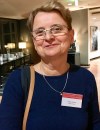 We are very fortunate that Therese Zoladek from Warsaw who presented at our Dresden meeting (see her recent article here) has kindly undertaken the translation of NANews 30 which is available on our website http://www.naadvocacy.org Thank you, Therese. Anyone who wishes to turn her/his hand to a translation of this NANews, please let us know. The procedure is not difficult and instructions are available. We are very fortunate that Therese Zoladek from Warsaw who presented at our Dresden meeting (see her recent article here) has kindly undertaken the translation of NANews 30 which is available on our website http://www.naadvocacy.org Thank you, Therese. Anyone who wishes to turn her/his hand to a translation of this NANews, please let us know. The procedure is not difficult and instructions are available.
|
|
|